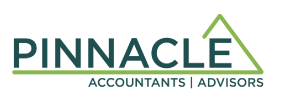April 19, 2021 Federal Budget Highlights

Canada’s Deputy Prime Minister and Finance Minister, Chrystia Freeland, delivered the 2021 Federal budget in the House of Commons on April 19, 2021. This is the first budget tabled by the federal government in over two years.
Highlights of the Budget include:
The Canada Emergency Wage Subsidy (CEWS) and Canada Emergency Rent Subsidy (CERS) including the Lockdown Support Program are extended through September 25, 2021.
The CEWS maximum wage subsidy will decrease from 75% to 60% in July, 40% in August, and 20% in September.
The CERS maximum rent subsidy will decrease from 65% to 60% in July, 40% in August, and 20% in September.
The budget introduces the Canada Recovery Hiring Program (CRHP), which provides a subsidy of up to 50% on the incremental remuneration paid to eligible employees between June 6, 2021 and November 20, 2021. An eligible employer can claim either the CEWS or the CRHP but not both for a particular qualifying period.
The budget introduces an earnings stripping rule which limits the net interest expense deduction to no more than a fixed ratio of 30% (40% in the first year of application) of “tax EBITDA”. This new rule applies to corporations, trusts, partnerships, and Canadian branches of non-resident taxpayers.
The budget proposes to provide temporary immediate expensing of eligible properties acquired by a Canadian Controlled Private Corporation (CCPC) that would otherwise qualify for capital cost allowance (CCA), up to a maximum of $1.5 million per taxation year.
The budget temporarily halves corporate tax rates for qualifying zero-emission technology manufacturing and processing income from activities carried on in Canada.
The budget expands CCA classes 43.1 (30%) and 43.2 (50%) to include a range of assets used in specified clean energy generation and energy conservation.
The budget discusses that there will be consultation on proposals to enhance Canada’s mandatory disclosure rules, addressing:
-
- Reportable and notifiable transactions
- Uncertain tax treatments
- Reassessment periods
These proposals would see an expansion on reporting requirements for corporations and would implement penalties for non-compliance.
The budget proposes to temporarily extend certain timelines for the Canadian Film or Video Tax Credit (CPTC) and the Film or Video Production Services Tax Credit (PSTC).
The budget announces that the government will take steps to modernize the general anti-avoidance rule, as previously announced in the 2020 Fall Economic Statement.
The budget enhances the Canada Worker’s Benefit (CWB) by increasing the benefit from 26% to 27% for income over $2,000. There are also beneficial changes to the phase-out thresholds.
The budget expands the travel component of the Northern Resident Deductions.
The budget changes the disability tax credit (DTC) eligibility criteria by expanding the list of mental functions necessary for everyday life, clarifying activities included in calculating time spent on therapy, and reducing the therapy administration requirement.
The budget introduces a new 1% tax on the value of non-resident, non-Canadian owned residential real estate which is vacant or underused. The new tax will be in effect beginning 2022.
The budget enhances Old Age Security (OAS) benefits by introducing a one-time $500 payment and then a 10% increase to regular payments. This applies to OAS recipients who are 75 or older as of June 2022.
The budget extends the Canada Recovery Benefit (CRB) for an additional 12 weeks and the Canada Recovery Caregiving Benefit by four weeks. It also outlines changes to make Employment Insurance (EI) more accessible.
The budget establishes a $15 minimum wage, indexed to inflation moving forward.
The budget proposes significant budgetary amounts for the CRA to fund initiatives and extension of existing programs related to GST auditing, risk assessment processes for GST fraud, and identification of tax evasion involving trusts.
The budget allocates funds to help employers offset the costs of the isolation requirements for entering Canada and to ensure temporary foreign workers have appropriate working conditions.
